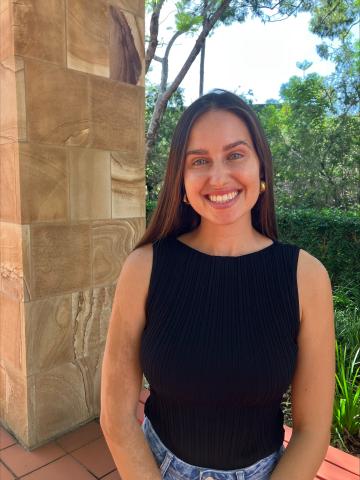There’s a new wave of surf tourism happening that’s an ocean away from the ‘Bintang and barrels’ style of surf trips of the past.
It caters almost exclusively to the most dedicated surfers in pursuit of the perfect wave, but who are just as conscious of how carefully they tread on the planet.

“Our clients are becoming increasingly concerned about sustainability,” said World Surfaris marketing manager Tamryn Sims (Class of 2016).
“Things like where the surf resorts source their food, how they generate their electricity, are they employing local villagers - the sorts of things that would hardly have entered the tourist consciousness a few years ago.
“There’s a growing awareness of the impacts of surf tourism on the destinations and our guests are increasingly interested in eco-friendly experiences as part of their surf trip.”
The 26-year-old Bond University Bachelor of Business alumna was speaking to a Surf Industry Studies class - back on campus this time as a player in the growing worldwide surfing tourism market that was estimated to be worth US$9.5 billion in 2022.
World Surfaris employs 16 staff and every one of them, like Ms Sims, is a surfing and travel enthusiast.
Her lecture followed addresses this semester by other surf industry marketing heavyweights Rip Curl Head of International Licencing Neil Ridgway, Vissla (surf apparel) Australasia Operations Manager John Mossop and the Marketing Manager of Surf Lakes, Brad Hutchins.
Assistant Professor and Surf Industry Studies subject presenter Craig Sims says explanations about how and why the surf industry exists come to life when students see the real-world applications.
“By having guest speakers of this calibre, our Surf Industry Studies students tap into a rich pool of knowledge and experience, giving them a better understanding of the theoretical underpinnings of this exciting and unique industry.
“The bonus is that students can establish industry connections before they even graduate,” he said.
World Surfaris organises surf experiences for groups to Indonesia, the Maldives, Samoa, Fiji and Papua New Guinea.
“Our core demographic is male surfers 35-45 years of age; corporate types with disposable incomes and the capacity to travel internationally two or three times a year.
“Most travel in groups of friends, while others bring their partners and family,” Ms Sims said.
“We also do all female trips which are gaining popularity, as is the luxury surf travel market for people who are happy to spend a bit more for all the trimmings and maybe indulge in a bit of wellness with yoga, healthy eating, saunas, beauty spas and those sorts of things.
“Our main demographic is Australian surfers, but we see ourselves as a global brand.”
M sSims says that’s an important distinction.
“It's critical to us that we define ourselves as a surf travel service, a surf travel brand, well away from the stigma of the traditional shopping centre travel agency,” she said.
“The surf industry can be broad, catering to a diverse range of surfers’ needs and wants.
“We’re proud to have found our niche, and we intend to stay true to that.”

